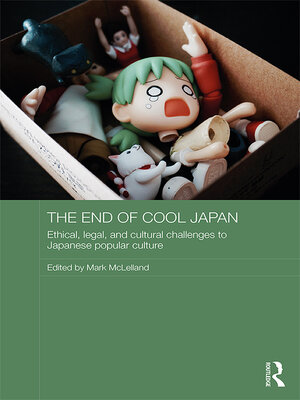The End of Cool Japan
ebook ∣ Ethical, Legal, and Cultural Challenges to Japanese Popular Culture · Routledge Contemporary Japan
By Mark McLelland

Sign up to save your library
With an OverDrive account, you can save your favorite libraries for at-a-glance information about availability. Find out more about OverDrive accounts.
Find this title in Libby, the library reading app by OverDrive.



Search for a digital library with this title
Title found at these libraries:
| Library Name | Distance |
|---|---|
| Loading... |
Today's convergent media environment offers unprecedented opportunities for sourcing and disseminating previously obscure popular culture material from Japan. However, this presents concerns regarding copyright, ratings and exposure to potentially illegal content which are serious problems for those teaching and researching about Japan. Despite young people's enthusiasm for Japanese popular culture, these concerns spark debate about whether it can be judged harmful for youth audiences and could therefore herald the end of 'cool Japan'.
This collection brings together Japan specialists in order to identify key challenges in using Japanese popular culture materials in research and teaching. It addresses issues such as the availability of unofficially translated and distributed Japanese material; the emphasis on adult-themes, violence, sexual scenes and under-age characters; and the discrepancies in legislation and ratings systems across the world. Considering how these issues affect researchers, teachers, students and fans in the US, Canada, Australia, China, Japan and elsewhere in Asia, the contributors discuss the different ways in which academic and fan practices are challenged by local regulations. Illustrating from personal experience the sometimes fraught nature of teaching about 'cool Japan', they suggest ways in which Japanese Studies as a discipline needs to develop clearer guidelines for teaching and research, especially for new scholars entering the field.
As the first collection to identify some of the real problems faced by teachers and researchers of Japanese popular culture as well as the students over whom they have a duty of care, this book will be of great interest to students and scholars of Japanese Studies and Cultural Studies.







